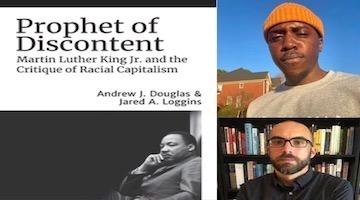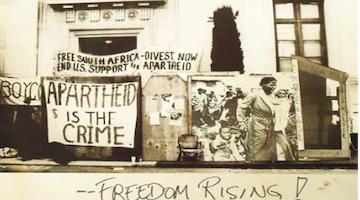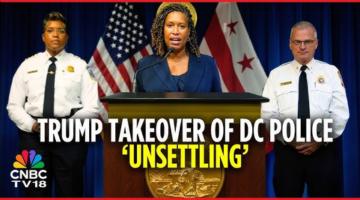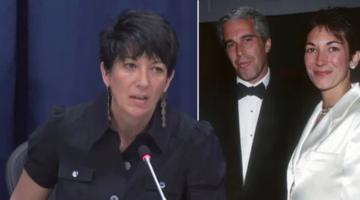“Spill is about freeing up our imaginations and our bodies for a world we deserve and yet don’t know how to narrate.”
In this series, we ask acclaimed authors to answer five questions about their book. To kick off the first week of the Black Agenda Report Book Forum, we will be featuring the work of Alexis Pauline Gumbs.Gumbs is a poet, independent scholar, and activist. Today, she discusses her book, Spill: Scenes of Black Feminist Fugitivity. Next week, readers will learn more about her latest work, M Archive: After the End of the World.
Roberto Sirvent: How can your book help BAR readers understand the current political and social climate?
Alexis Pauline Gumbs: Spill is about seeking freedom within the context of multiple forms of gendered and racialized violence. (Hint: all violence is gendered and racialized.) At this current political moment we are learning (some of us for the first time, many of us not) how deeply all of our institutions are shaped by this violence. Not just the fact that many major individual people in power in our media, academic, governmental and business institutions have committed repeated acts of violence, but that all of these institutions are shaped by a logic of violence. As I say elsewhere this is the time of the silence breaking.[1] Spill looks at the ways that this has impacted Black women and Black communities for centuries and also at the ways that Black women have resisted.
What do you hope activists and community organizers will take away from reading your book?
Spill is about individuals and whole communities seeking freedom. I hope that community organizers and activists will see themselves in the way the book finds freedom resources everywhere, from the act of cooking a pot of greens, to leaving or surviving an abusive home, to skateboarding and rioting, to being an old woman in love with your neighbor, to being a young girl in a digital book club. What would it mean if in our organizations, our direct actions, our grant proposals (Lorde help us) we were unapologetically present to the infinite ways that freedom shows up in the living and learning of Black people and our communities? The idea of fugitivity in the book is not only about escaping an enslaving situation, but it is also about creating refuge together for those of us who would risk the work of getting more free than we are supposed to be.
We know readers will learn a lot from your book, but what do you hope readers will un-learn? In other words, is there a particular ideology you’re hoping to dismantle?
Spill is a way to unlearn narrative itself, the way we place ourselves into a story as if the way all this started and how it will end makes sense. All of us who live under oppression in the midst of deadly stories of who Black people are and are not, internalized stories of cyclical interpersonal and state violence, extractive stories about the environment and labor are surviving stories that started with a lie and end up with our own repeated suffering.
Spill does not have a linear beginning or end. It is a book of middles. Every scene takes place is in the middle of a possibility for freedom, and actually, in every moment, so are we. What if we didn’t believe in the origin stories that narrate our lives into capitalist expendability. What if we didn’t believe the world we keep making was inevitable? What could happen then? The book plays with the idea of a plot with the chapter titles (“How she knew,” “How she left,” “How she survived until then,” etc.), but actually there is no plot except for the way the plot as in plan/graph/blueprint/garden already lives in our smallest realizations and actions towards freedom. Spill is about freeing up our imaginations, and our bodies for a world we deserve and yet don’t know how to narrate.
Who are the intellectual heroes that inspire your work?
All of my work is made possible by the Black feminist tradition and the conjure work of Black women writers. Spill is named in honor of Hortense Spillers, a Black feminist theorist and literary scholar who is truly a founder of the field. Hortense Spillers used the form of the academic essay as a portal and a tool to interrupt an intellectual practice that sought to exclude or subsume Black gendered experiences into oppressive narratives. Her work says again and again, we can not be contained by this. We are above it and underneath it and something else is already happening. She called it the “intervening narrative” or “a new grammar book.” Her work is the work that makes Spill possible because it articulates, for a community of scholars that fugitive impulse. Every scene in Spill is inspired by a phrase in one of the essays in Spillers book Black White and In Color.
In what way does your book help us imagine new worlds?
As I mentioned, this book is a libation. So it is the part of the ceremony where we cleanse the road and our heads by honoring and acknowledging centuries of silenced violence. And Spill not only clears us up to imagine something new, it also zooms in on the new worlds that already existed in each of those moments. Spill asks us to remember new worlds that we’ve been stepping over this whole time, created in the ritual spaces of the kitchen, the bathtub, the front porch. New worlds that our great grandmothers already saw, and tasted and sweated into being. In other words, this book, and every moment, is an opportunity to recognize that this populated planet, is full of worlds and wisdom made and remade touching each other through time. Knew worlds, in the supposed unknown. This is about how old our freedom is.
Roberto Sirvent is Professor of Political and Social Ethics at Hope International University in Fullerton, CA. He also serves as the Outreach and Mentoring Coordinator for the Political Theology Network. He’s currently writing a book with fellow BAR contributor Danny Haiphong called American Exceptionalism and American Innocence: Essays on Race, Empire, and Historical Memory.
[1] I talk about this in my speculative short story “Evidence” which is published in Octavia’s Brood: Science Fiction Stories from Social Justice Movements.



















